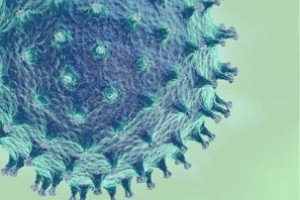New: Powder AI vaccination with dead virus particles

Dutch researchers have developed an avian influenza vaccine that can be applied on a large scale on poultry farms by using dead virus particles inside a powder.
The vaccine has been developed on the basis of the strain H5N1, explained Dr Erik Frijlink, professor in pharmaceutical technology and biopharmacy at Groningen University, the Netherlands.
The idea of the vaccine is to create resistance amongst poultry flocks against infections by migratory birds, often a source of avian influenza.
On Dutch radio, Frijlink explained, “The new vaccine only includes dead virus particles, making it harmless to humans.” Similar viruses did exist, but only through injection, which is difficult on modern large poultry farms. The new virus will be distributed through condensation in the air – the vaccine will be distributed in the farm air as a very thin powder. The flock will then just breathe it in.
The innovation would mainly be important for solutions in Eastern Asia. Massive vaccinations might help there to subdue outbreaks of hazardous strains of avian influenza.
For countries inside the European Union, the drawback of this development is that vaccination might make poultry meat not eligible for exports. Some countries don’t wish to import eggs and meat of vaccinated chickens as it is not possible to tell whether carcasses carrying traces of antibodies have been infected or vaccinated during their lives.
Still, the research serves a good purpose, even in the EU. Frijlink added, “The massive culling of poultry is not socially acceptable in the long run.”
The new development might help to vaccinate on a large scale quickly if necessary. It is, however, possible to apply the technique to the new H5N8 strain, which has been found in Germany, the UK and the Netherlands this month.
The vaccine has been developed with support of the ministry of Economic Affairs, including agriculture. Apart from Groningen University, also the University Medical Centre Groningen, the Central Veterinary Institute in Lelystad and the University Utrecht cooperated.













